Treatment Innovations
-
Facebook
-
Twitter
-
Linkedin
Innovations in cancer treatment are transforming patient care by introducing more precise, effective, and less invasive therapies. Immunotherapy, including checkpoint inhibitors and CAR-T cell therapy, has revolutionized cancer care by harnessing the immune system to target and destroy cancer cells.
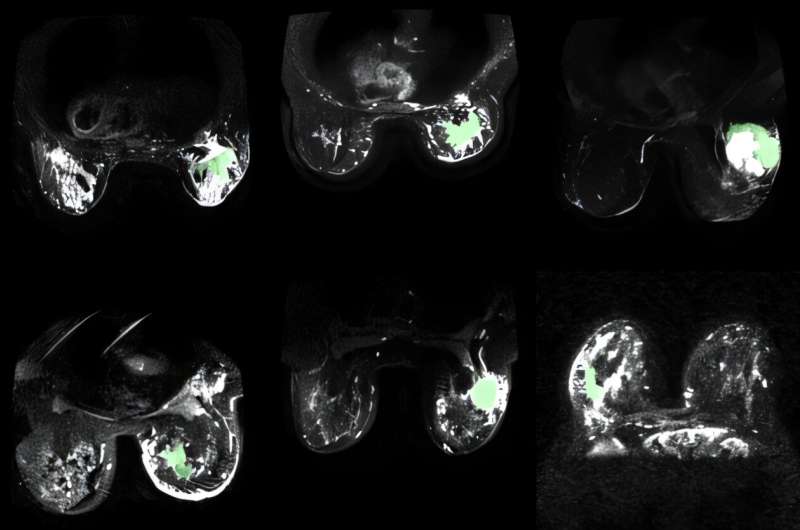
Cancerous breast tissue glows in new AI-enhanced MRI images
Imaging technology developed and refined at the University of Waterloo promises better detection and treatment of breast cancer by more accurately pinpointing cancerous tissue.

Experimental vaccine for common cancer shows potential in clinical trial
At Memorial Sloan Kettering Cancer Center (MSK) in New York, an experimental approach to treating the cancer with a messenger RNA (mRNA)-based therapeutic vaccine “continues to show potential” in reducing the risk of the disease returning after surgery, according to a press release.
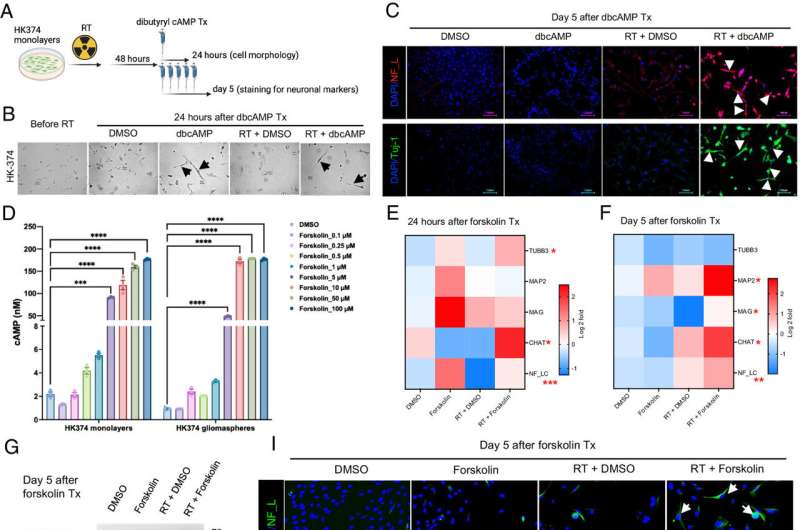
Glioblastoma treatment strategy reprograms cancer cells, halting tumor growth
UCLA scientists have identified a potential new strategy for treating glioblastoma, the deadliest form of brain cancer, by reprogramming aggressive cancer cells into harmless ones.

How a butterfly’s wings could help diagnose cancer faster and more accurately
Scientists at the University of California San Diego have discovered an unusual but powerful tool in the fight against cancer—the shimmering blue wings of the Morpho butterfly.

THON providing hope to families fighting pediatric cancer
STATE COLLEGE, Pa. (WTAJ) — THON’s 46-hour dance marathon provides many families an avenue of hope when it comes to financing their child’s cancer expenses.

Blockbuster Weight-Loss Drugs & Cancer Risk: Ozempic Can Affect Pancreas Cells, Experts Weigh In On Whether That’s Worrisome
For people taking GLP-1 drugs, such as the mega-popular weight-loss drug Ozempic (semaglutide) — intended for type 2 diabetes patients and people with obesity — there has been some concern about the effects on the pancreas and whether or not there is a potential risk of pancreatic cancer for people using these medications.

New Hope For Bladder Cancer Patients Like Broadcaster Terry Bradshaw; Saving The Bladder & Avoiding Cancer Spread With A New Protocol
An ongoing clinical trial is suggesting that a certain type of treatment for muscle-invasive bladder cancer—noadjuvant chemoimmunotherapy followed by risk-adapted therapy—offered better rates of metastasis-free survival and helped patients keep their bladders.

Therapy combo show promise for bladder cancer treatment
A new study suggests that a combination of radiation therapy and immune checkpoint inhibitors (ICIs) may offer a less invasive alternative to bladder removal for patients with muscle-invasive bladder cancer (MIBC).

Cold therapy can reduce nerve pain in breast cancer patients
A new study led by researchers at the George Washington University Cancer Center has found that cold therapy, also known as cryotherapy, can help protect breast cancer patients from nerve pain caused by chemotherapy.

PAC-MANN diagnoses early-stage pancreatic cancer with 85% accuracy
Scientists at Oregon Health and Science University (OHSU) have developed a new blood test for pancreatic cancer, one of the most deadly forms of the disease. Tests showed up to 85% accuracy in detection, even in early stages.
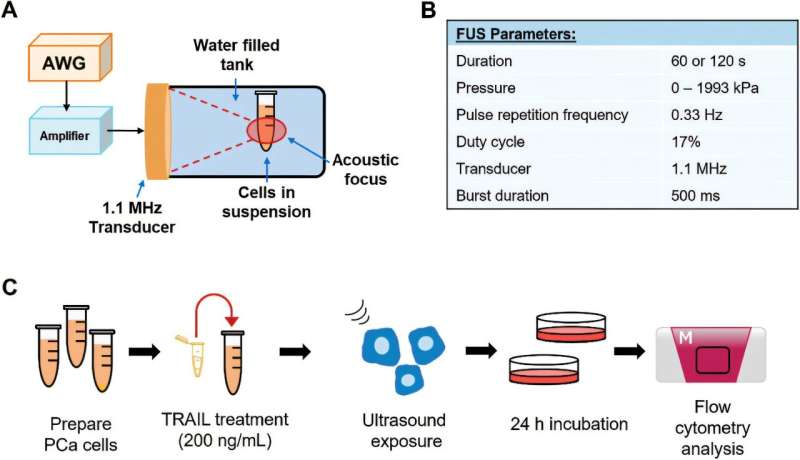
Combining protein therapy and focused ultrasound therapy can improve cancer treatment
Combining an existing small-molecule protein therapy called tumor necrosis factor related apoptosis-inducing ligand (TRAIL) with focused ultrasound (FUS) can significantly reduce tumor size and burden in prostate cancer models, according to a new study published in Advanced Science by researchers at Rice University and Vanderbilt University.

Packing lipid nanoparticles with tumor proteins to boost cancer vaccine potency
The concept of using vaccines to treat cancers has been around for several decades.

Scientists find the cause of stomach cancer growth and spread
Researchers have discovered that stomach cancer cells connect with nearby sensory nerves, forming electrical circuitsthat fuel tumor growth and help the cancer spread.
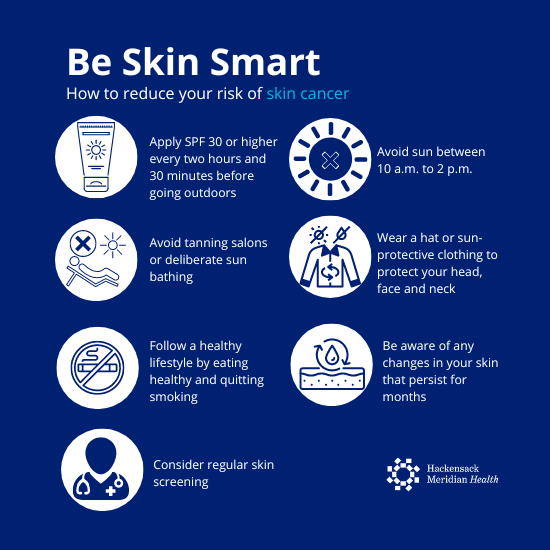
How to lower your risk of skin cancer
GRAND RAPIDS, Mich. (WOOD) — Skin cancer is the most common form of cancer worldwide, and an estimated 1 in 5 Americans develop it by age 70, the Skin Cancer Foundation says. Luckily, there are practical ways to lower your risk of getting it.
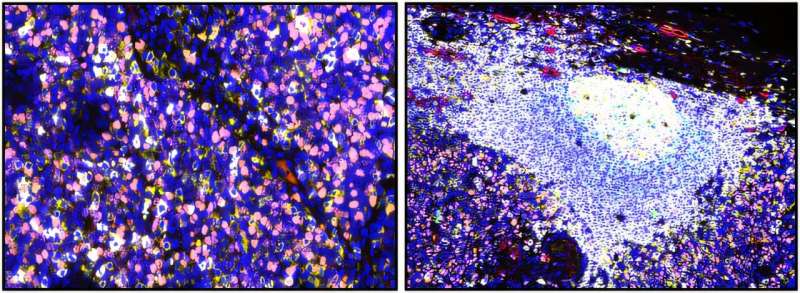
Dysfunctional B cells: A novel target for cancer immunotherapy and diagnostics
University of Pittsburgh School of Medicine and UPMC Hillman Cancer Center scientists have discovered a novel subset of cancer-fighting immune cells that reside outside of their normal neighborhood—known as the tertiary lymphoid structure—where they become frustratingly dysfunctional when in close contact with tumors.
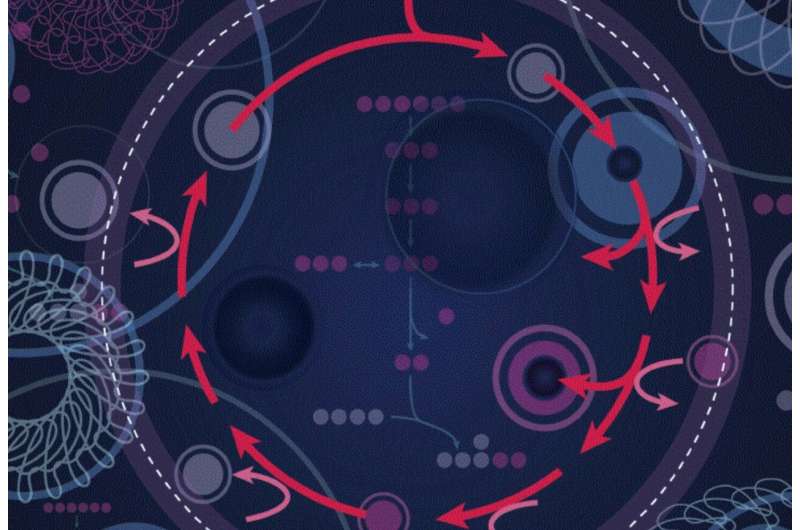
Scientists identify feature of aggressive non-small cell lung cancer
In localized non-small cell lung cancer (NSCLC), a tumor’s ability to use carbon from glucose to feed the tricarboxylic acid (TCA) cycle predicts cancer spread beyond the lung, months to years before metastases are clinically apparent.
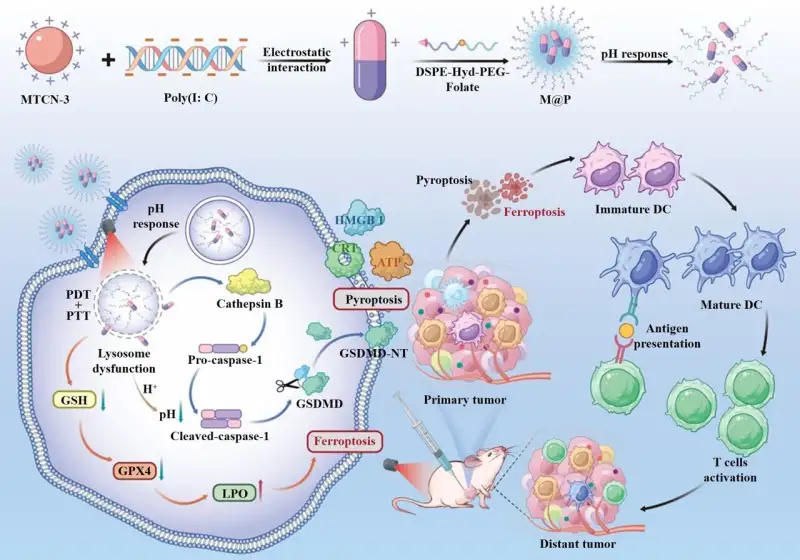
Self-assembling nanoplatform can boost cancer photoimmunotherapy effectiveness
Photoimmunotherapy is an innovative cancer treatment that combines phototherapy with immunotherapy to selectively target and destroy cancer cells.

Higher Calcium Intake Linked to Reduced Colorectal Cancer Risk
Finding was consistent across calcium sources and tumor sites

Quantum camera could help detect cancer as soon as it forms
The imminent development of quantum cameras promises to transform many sectors, starting with medicine.
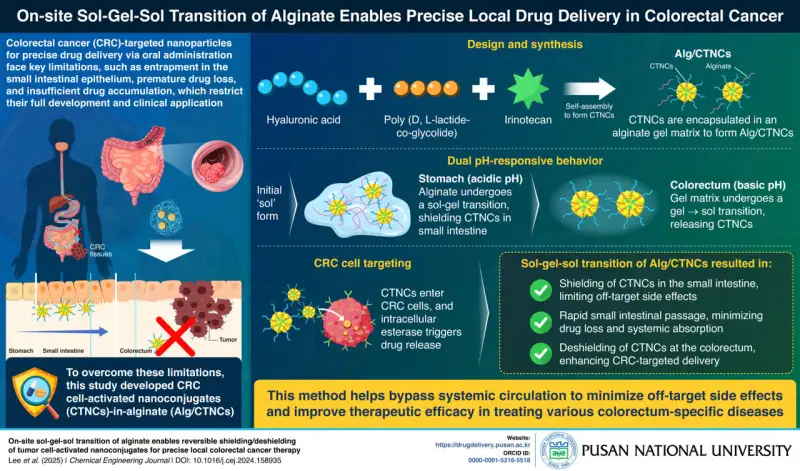
Self-protecting nanoparticles can enhance colorectal cancer drug delivery
Colorectal cancer (CRC) is one of the most prevalent types of cancer and has a high mortality rate globally. Oral administration of anticancer drugs that pass through the gastrointestinal (GI) tract into the colorectum is a common strategy to deliver drugs in CRC treatment.

Talazoparib + Enzalutamide Tied to Improved Overall Survival in Metastatic Prostate Cancer
WEDNESDAY, Feb. 19, 2025 (HealthDay News) — For patients with metastatic castration-resistant prostate cancer (mCRPC) unselected for homologous recombination repair (HRR) gene alterations, talazoparib (TALA) + enzalutamide (ENZA) is associated with improved overall survival versus placebo + ENZA, according to a study presented at the American Society of Clinical Oncology annual Genitourinary Cancers Symposium, held from Feb. 13 to 15 in San Francisco.

Testosterone Recovery Linked to Overall Survival in High-Risk Prostate Cancer
TUESDAY, Feb. 18, 2025 (HealthDay News) — Serum testosterone (T) recovery to normal levels is associated with a significant improvement in overall survival in patients with high-risk prostate cancer receiving radiotherapy and long-term androgen deprivation therapy (ADT), according to a study presented at the American Society of Clinical Oncology annual Genitourinary Cancers Symposium, held from Feb. 13 to 15 in San Francisco.

Genetically altered mice shed light on skin cancer
Research in Asia and Europe has provided further insights into how disruption to communication between the gut and brain could have an effect on anxiety levels and diseases such as Alzheimer’s.

KN026-Docetaxel Combo Shows Efficacy, Safety in HER2+ Metastatic Breast Cancer
KN026, a HER2-directed bispecific antibody, plus docetaxel achieved long-term response with manageable safety as a first line of therapy for patients with recurrent/metastatic HER2-positive breast cancer, as demonstrated by phase 2 trial (NCT04165993) results published in Cancer Communications






